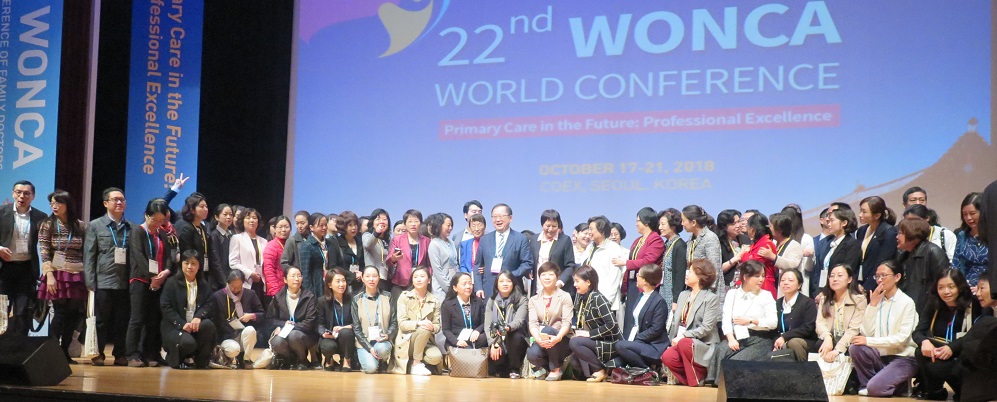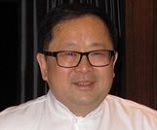In my view ... Donald Li

 Español 中文
Español 中文
Donald Li, newly inaugurated WONCA President, pictured above with colleagues at the WONCA world conference Seoul writes:
October was a very busy month for WONCA. Meetings of the outgoing and incoming WONCA World Executives, World Council and World Conference – followed closely by the Astana Global Conference on Primary Care, hosted by WHO. Those few weeks were packed with energy, enthusiasm, gratitude, some disappointment and plenty of determination.
At my inauguration as President I promised, among other things, to continue to advocate for family medicine as essential to achieving Universal Health Coverage and strong cost-effective health systems. The Astana Declaration made it clear that there is still much to be done for professionally qualified primary care teams to be recognised and acknowledged as the backbone of the primary care delivery system in every country.
The WONCA delegation – and WONCA family members who were at Astana wearing a number of hats – were understandably disappointed that the final Declaration did not refer specifically to family doctors or any other members of the primary care team. We understand that the references to specific professional groups were removed from the final draft, as WHO Member States could not arrive at a consensus on the appropriate label to use to reflect our profession. Various terms had been included in different iterations of the draft Declaration, including family doctors, general practitioners and primary health care specialists.
Within our profession globally we find ways to accommodate the different labels we have for the individuals who provide the range of primary care services, though we struggle somewhat with the different meanings applied to the same terms in different countries. The label ‘General Practitioner’ is a good example of this confusion. In some countries this refers to a doctor with professional post-graduate qualifications, whereas in other countries the term refers to someone who has a basic MBBS degree but who is still entitled to practice. If the term and its meaning are unclear within the profession (despite the efforts of previous WONCA publications to address the issue), it is not entirely surprising that WHO Member States have difficulty coming to a consensus on the wording in the Declaration.
Key external priorities for the 2018-2020 biennium are to liaise effectively with WHO, raise the WONCA profile and increase visibility of WONCA globally. Our agenda has been set. We will take on the challenge, using the body of expertise available in our membership.
We will assist WONCA Regional Presidents to liaise effectively with WHO regional offices. We will increase, co-ordinate and target our liaison with WHO at the global policy level. Internally we will address how best to build consensus on labels and the meanings of labels for our profession, as part of our internal corporate governance programme. We will also work more closely with our professional colleagues who form the primary care team, to build evidence and advocacy for the importance of that team to achieve the global goal of Universal Health Coverage.
All of us – every Member Organisation, every Direct Member, every Life Direct Member and every Academic Department Member - has a part to play. Participate in the work to the extent that you can. Use your skills and expertise to contribute to our Working Parties and Special Interest Groups, to build momentum and evidence for our profession.
Achieving Universal Health Coverage depends on providing high quality, comprehensive, integrated primary care – building the teams to provide the care is crucial. WONCA has a key role to play in this endeavour.